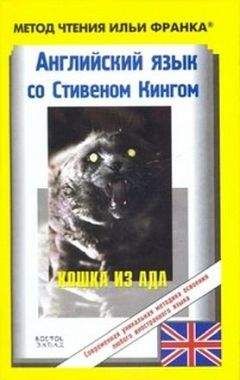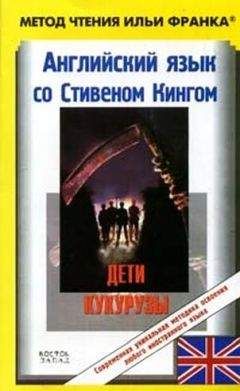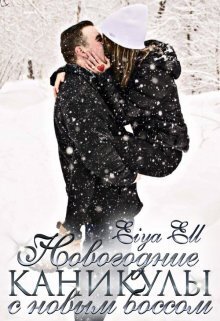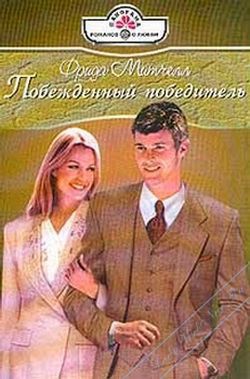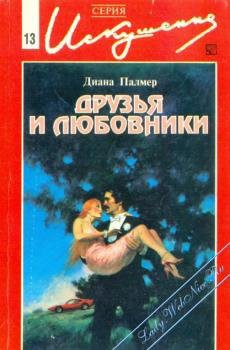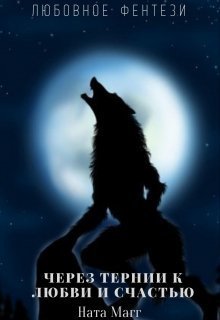Stephen King - Английский язык со Стивеном Кингом "Земляничная весна"

Помощь проекту
Английский язык со Стивеном Кингом "Земляничная весна" читать книгу онлайн
“It's going to snow soon (скоро пойдет снег),” he said.
I turned around and looked at him (я обернулся и посмотрел на него). “Does the radio say that (по радио говорят)?”
“No,” he said. “Who needs a weatherman (кому нужен метеоролог)? Have you ever heard of strawberry spring (ты когда-нибудь слышал о земляничной весне)?”
“Maybe (может быть),” I said. “A long time ago (очень давно). Something grandmothers talk about, isn't it (это все бабушкины сказки: «/это/ что-то, о чем бабушки говорят», не так ли)?”
twilight ['twaIlaIt], female ['fJmeIl], squeezed [skwJzd]
Twilight came and the fog with it, drifting up the tree-lined avenues slowly, almost thoughtfully, blotting out the buildings one by one. It was soft, insubstantial stuff, but somehow implacable and frightening. Springheel Jack was a man, no one seemed to doubt that, but the fog was his accomplice and it was female… or so it seemed to me. If was as if our little school was caught between them, squeezed in some crazy lover's embrace, part of a marriage that had been consummated in blood. I sat and smoked and watched the lights come on in the growing darkness and wondered if it was all over. My room-mate came in and shut the door quietly behind him.
“It's going to snow soon,” he said.
I turned around and looked at him. “Does the radio say that?”
“No,” he said. “Who needs a weatherman? Have you ever heard of strawberry spring?”
“Maybe,” I said. “A long time ago. Something grandmothers talk about, isn't it?”
He stood beside me (он стоял позади меня), looking out at the creeping dark (глядя в крадущуюся = сгущающуюся темноту за окном; to creep — ползать; красться).
“Strawberry spring is like Indian summer (земляничная весна — как индейское = бабье лето),” he said, “only much more rare (только намного более редкая = случается гораздо реже). You get a good Indian summer in this part of the country once every two or three years (хорошее бабье лето бывает в этой части страны раз в два-три года). A spell of weather like we've been having (/а вот/ такая погода, как у нас сейчас; spell — промежутоквремени, период, пора) is supposed to come only every eight or ten (говорят, случается лишь каждые восемь или десять лет; to suppose — полагать; предполагать, допускать). It's a false spring (это ложная весна), a lying spring (лживая/обманная весна; to lie), like Indian summer is a false summer (так же, как и бабье лето — /это/ ложное лето). My own grandmother used to say (моя бабушка говорила) strawberry spring means (земляничная весна означает = признак того) the worst norther of the winter is still on the way (/что/ самая худший = сильный северный зимний ветер все еще в пути; norther — сильныйсеверныйветер, частосдождемилиснегом) — and the longer this lasts, the harder the storm (и чем дольше она длиться, тем сильнее будет ненастье; storm — буря, гроза, ураган).
“Folk tales (россказни/сказки; folk — народ),” I said. “Never believe a word (не верю ни единому слову; never — никогда; нисколько, никоим образом). “I looked at him (я посмотрел на него). But I'm nervous (но я нервничаю). Are you (а ты)?”
He smiled benevolently (он дружелюбно улыбнулся; benevolent — благожелательный, доброжелательный; дружелюбный) and stole one of my cigarettes from the open pack on the window ledge (и стянул одну из моих сигарет из открытой пачки, /лежавшей/ на подоконнике; to steal — воровать, красть; делать что-либо незаметно, тайком или без разрешения). “I suspect everyone but me… and thee (я подозреваю всех, кроме себя… и тебя; thee — /уст., поэт.; косвенный падеж от thou/ тебе, тебя, тобой),” he said, and then the smile faded a little (сказал он, и тут /его/ улыбка немного потускнела). “And sometimes I wonder about thee (а иногда я сомневаюсь и насчет тебя). Want to go over to the Union and shoot some eight-ball (не хочешь пойти погонять шары в клубе; to shoot — стрелять; играть /особ. в игры, связанные с бросками/; eight-ball — шар номер восемь, черный шар в амер. бильярде; union — объединение, слияние; cоюз; /= students' union/ студенческий союз; студенческий клуб, культурный центр)? I'll spot you ten (даю десятку форы; to spot — пятнать; ставить пятно; располагать на определенном расстоянии, с определенным интервалом; /амер./ давать фору; spot — пятно).”
rare [req], false [fLls], thee [DJ]
He stood beside me, looking out at the creeping dark.
“Strawberry spring is like Indian summer,” he said, “only much more rare. You get a good Indian summer in this part of the country once every two or three years. A spell of weather like we've been having is supposed to come only every eight or ten. It's a false spring, a lying spring, like Indian summer is a false summer. My own grandmother used to say strawberry spring means the worst norther of the winter is still on the way — and the longer this lasts, the harder the storm.
“Folk tales,” I said. “Never believe a word. “I looked at him. But I'm nervous. Are you?”
He smiled benevolently and stole one of my cigarettes from the open pack on the window ledge. “I suspect everyone but me… and thee,” he said, and then the smile faded a little. “And sometimes I wonder about thee. Want to go over to the Union and shoot some eight-ball? I'll spot you ten.”
“Trig prelim next week (на следующей неделе вступительный/первый экзамен по тригонометрии; trig — сокр. отtrigonometry; prelim — сокр. отpreliminary /examination/). I'm going to settle down with a magic marker and a hot pile of notes (я собираюсь посидеть спокойно с маркером и стопкой/кучей конспектов, которыми нужно срочно заняться: «горячей стопкой записей»; to settle down — устраиваться, усаживаться; с усердием взяться за работу; Magic Marker /”волшебный маркер”/ — фирменное название маркировочного карандаша).”
For a long time after he was gone (долгое время после того, как он ушел), I could only look out the window (я мог лишь смотреть в окно). And even after I had opened my book and started in (и даже когда я открыл книгу и принялся /читать/; to start in — начинать, приниматься), part of me was still out there (/какая-то/ часть меня все еще была там), walking in the shadows where something dark was now in charge (бродила среди теней, где теперь властвовало нечто темное;to be in charge — заведовать, руководить, управлять).
That night Adelle Parkins was killed (в тот вечер была убита Адель Паркинс). Six police cars (шесть полицейских машин) and seventeen collegiate-looking plain clothes men (и семнадцать выглядящих по-студенчески детективов в штатском) (eight of them were women imported all the way from Boston (восемь из них были женщины, вызванные аж из Бостона; to import — ввозить, импортировать) patrolled the campus (патрулировали кампус). But Springheel Jack killed her just the same (но Попрыгунчик Джек ее все-таки убил), going unerringly for one of our own (безошибочно выбрав одну из наших; to err — сбиваться с пути; ошибаться; to go for… — пойти, сходить за /чем-либо, кем-либо/; предпочитать, выбирать; нападать на /кого-либо/). The false spring, the lying spring (фальшивая, обманная весна), aided and abetted him (помогала ему, подстрекала его; to abet — стимулировать, побуждать; содействовать /совершению чего-либо дурного/) — he killed her and left her propped behind the wheel of her 1964 Dodge (он убил ее и усадил за руль ее “доджа” 1964 года; to leave — оставлять; to prop — подпирать; прислонить /к чему-либо/; wheel — колесо; руль) to be found the next morning (где ее и нашли на следующее утро) and they found part of her in the back seat and part of her in the trunk (и они нашли часть ее на заднем сидении и часть — в багажнике; trunk — ствол; багажник). And written in blood on the windshield (и, написанные кровью на ветровом стекле) — this time fact instead of rumour (на этот раз /уже/ факт, а не слухи; instead — вместо) — were two words: HA! HA! (были два слова “Ха! Ха!”)
prelim [prI'lIm], collegiate [kq'lJGIqt], abetted [q'betId]
“Trig prelim next week. I'm going to settle down with a magic marker and a hot pile of notes.”
For a long time after he was gone, I could only look out the window. And even after I had opened my book and started in, part of me was still out there, walking in the shadows where something dark was now in charge.

